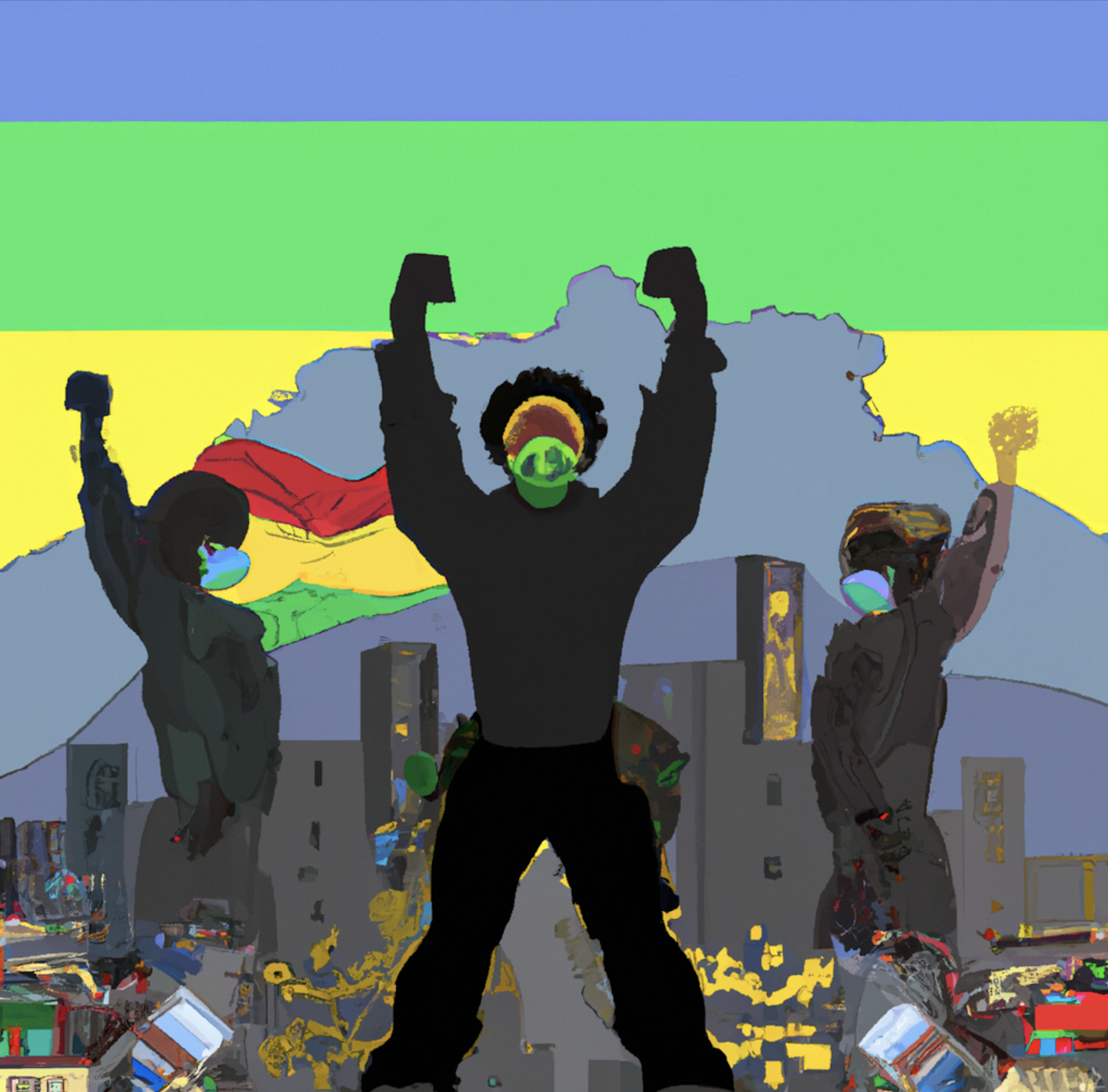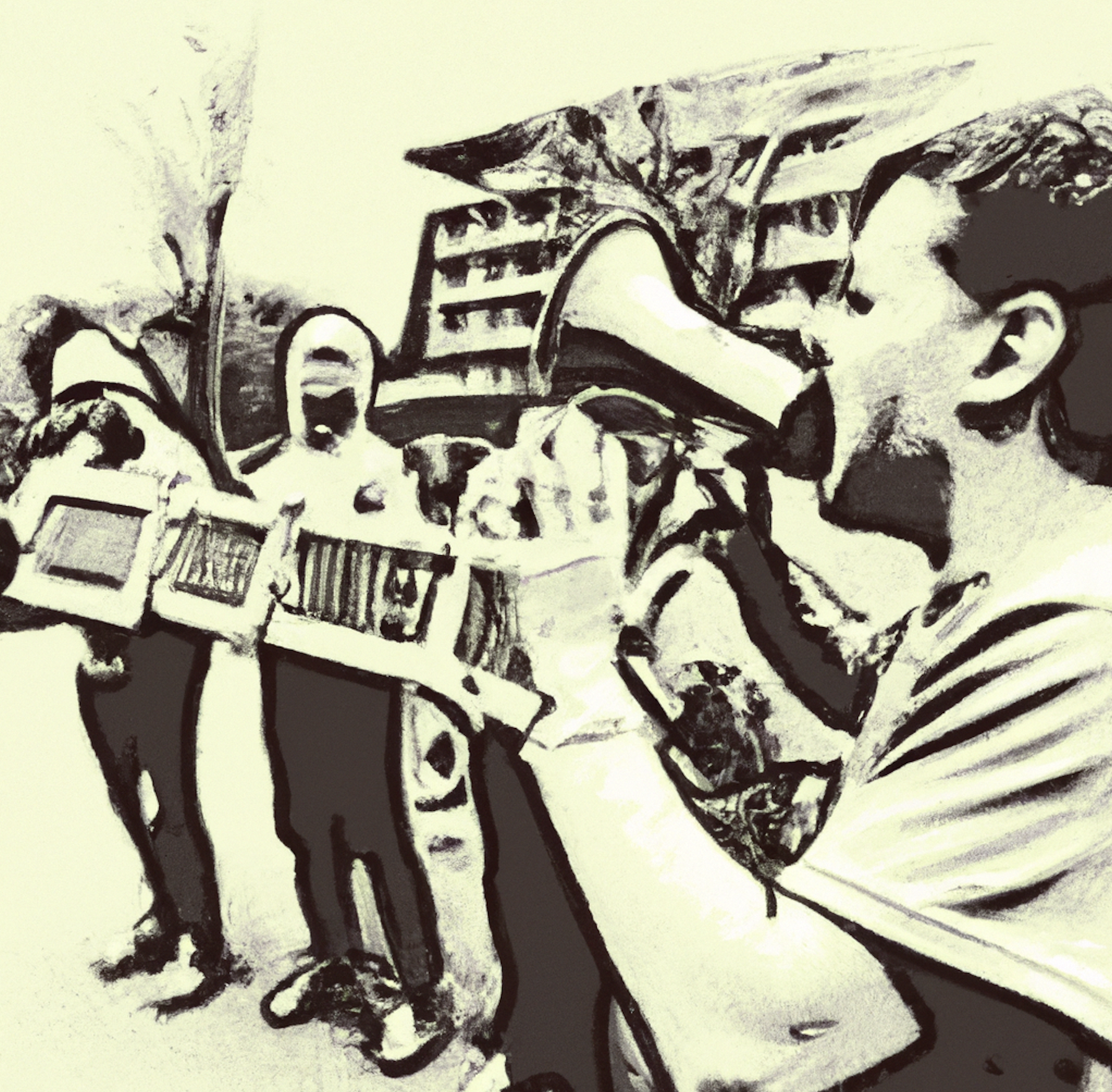by Heather Wakefield
A scene from Lewisham in South-East London…
“The Welfare of the People is the First Great Law”. So goes the motto for Lewisham Council, my home ‘town’ in south east London. Last night as the sirens wailed and the helicopters roamed restlessly overhead, it felt more like a war zone than the beneficent local state its motto suggests. This morning, Catford, just down the road by the Town Hall, has the feel and appearance of a battle scene. Lewisham’s shopping centre has closed early this afternoon, in anticipation of a well-tweeted proposal to attack Europe’s largest police station – standing faceless and unwelcoming, where the borough’s last department store once made sure that we were being served.

Ours weren’t the worst of yesterday’s riots, but it would have come as no surprise if they had been. A long-time net exporter of labour, with a diminishing number of local jobs, Lewisham tops the UK’s league table for youth unemployment. According to the Office of National Statistics, almost 36% of Lewisham’s 16 – 24 year olds were out of work last year, compared to a UK average of 19.5%: alarming figures by any standards. Meanwhile, Croydon and Hackney – also under siege last night – were almost as bad – with youth unemployment levels of 33%.
In 2010, a TUC report showed that Job Seekers Allowance claimants in my ‘hood outnumbered overall job vacancies by almost 14:1. Compare this to a national average of 5:1. This made Lewisham the third worst centre of unemployment in England, after Haringey and Hackney. In 2010, it was the 31st most deprived council in England – up from 52nd in 2004. Meanwhile, Canary Wharf with its Big Bonus-earning Bankers and their ever-expanding pension pots nestles a complacent 5.6 miles away across the river – another world indeed. Beginning to make some connections?

Unemployment and poverty are not Lewisham’s only distinguishing characteristics. Those readers who recall the ‘Battle of Lewisham’ against the National Front in 1977, the dreadful tragedy of thirteen young black peoples’ deaths in the New Cross Fire of 1981, the ‘Dread, Beat and Blood’ of Linton Kwesi Johnson and the Catford ministry of the Revd Desmond Tutu, will also know that Lewisham has long been a sustaining home to many black and ethnic minority people, as well as the locus of historic struggles against racism and white supremacist organisations. 34% of Lewisham’s population are from black and other ethnic minorities, compared to a 6% average across England.
Grandparents and parents from the Caribbean, Africa, India and Pakistan – as well as the white working class – once worked hard for a living in local hospitals, transport, the council and low paid jobs in the private service sector. They now see their children and grandchildren facing the interminable prospect of lives without even low paid work, as the great law of the welfare of the people unravels in the haze of George Osborne’s deficit reduction strategy and a global economy in crisis. That means lives without money and all those things that turbo capitalism has made us think we need – even if we could only afford them in the ‘boom’ times on the sort of credit that helped bring the global economy close to its knees. Most live out a ground down existence on the dole and the margins of London’s consumer society.
That’s bad enough in itself, but Coalition cuts have wreaked savage revenge on Lewisham’s Labour majority council, which has barely put up any kind of a fight against the ensuing meltdown in services for young people. Earlier in the year the council decided to shut down the Connexions service, which played an important part in supporting workless young people along the way through learning and unemployment – and occasionally found them a job too! (I was impressed by the very kind and gentle Connexions advisor who called a couple of times last year to check that my gap-year son was doing OK and who was delighted to hear that he’d scored a temp job in John Lewis.) It was the largest cut yet made to a Connexions service anywhere and has led UNISON to explore a judicial review on the grounds that Lewisham is failing to meet its statutory obligations to provide ‘Information, Advice and Guidance’ services. Add to this the five libraries and IT centres that were closed in May, cuts to youth work, restricted access to the EMA and unimaginable university tuition fees and you can see why young people in my neck of the woods are angry.
Policing practice in Lewisham shows that black people are on the end of the strongest arm of the law when it comes to ‘stop and search’ too. Between March and May 2011, there were 7 searches per 1000 white people, compared to 30 for blacks, 15 for Asians and 12 for ‘others’, although white arrests slightly exceeded those for black people. Not at all surprising then that the death of Mark Duggan should trigger the latent anger of those singled out for such special attention.
Of course, none of these facts and figures justify the sort of wanton and personal violence meted out to hard working and terrified residents of Lewisham and elsewhere over the last couple of days. It is hard to construe the riots as the ‘moral economy’ depicted by Edward Thompson, renowned historian of the English working class. The sight of dispossessed, forgotten young people destroying the heart of their own communities is as sickening as it is saddening. But it should come as no surprise. Those who have been deprived of the chance to use their own imagination, skills and labour to find the self-respect and material comforts that we are led to consider normal in this crazy world, have been literally forced outside of society.
Many of my young Lewisham neighbours no longer feel that there is any trace of a local Great Law ensuring their welfare. Without the beneficent aspects of the state, many are left with nothing material or psychological to hang on to. The moral codes that evolve from citizens who feel a responsibility to those around them no longer apply. MP’s fiddling expenses, tax evaders, phone hackers and multi-nationals who screw their workforces are hardly an example to anyone either, are they? The big question is, where to now?
Heather Wakefield is Head of Local Government, Police and Justice at UNISON, the UKs largest public service union.
More responses to the riots:
Taking Stock: Looting and the Left in the London Riots
by Dr. Andrew Sanchez, Department of Anthropology, London School of Economics and Political Science
As I write this article on August 10th 2011, the UK is awaking from four nights of widespread civil unrest which initially grew from a lonely spark in a highly combustible atmosphere. The shooting of a man in Tottenham, North London, by the Metropolitan Police invited community condemnation which initially expressed itself in a street vigil and a demonstration. In a matter of hours, the Tottenham demonstration had become an outpouring of rage and alienation which expressed itself as a riot. By the end of the evening, the hopelessness of working class life under a conservative government had begun to express itself as self-harm, as hundreds of young people looted and then burned their own neighbourhood. Forty eight hours later, most of the city’s major provincial shopping centres and a number of large housing estates were experiencing widespread acts of arson and looting as thousands of teenagers battled police for control of the streets.
Mainstream media sources claim that violence of this form and scale has not been seen in London since the early 1980s, when rioting in predominantly black communities reacted to the brutalising and profoundly alienating institutions of British society. Many of my associates in the British far left are broadly in concurrence with this analysis, and draw parallels between the social context of the 2011 riots and the austerity of the Thatcher era. It is true that the current government is engaged in an attack on the welfare state which will knowingly disenfranchise the British working class on a tremendous scale, and that this programme is decidedly Thatcherite in form. It is also true that as in the 1980s, the Metropolitan police currently enjoys an exceptionally low level of public confidence following highly publicised abuses of power and serious allegations of corruption. However, the tendency to read today’s riots as though they were anachronistic echoes of the struggles of the previous generation is misguided, and unwittingly downplays the level of social problems currently faced by sections of the British working class.
The riots of the 1980s articulated the disenfranchisement of certain communities from the wider British society. What they did not articulate was the alienation of individuals within those communities from one another. The urban riots of the 1980s emerged from communities that had a powerful and confident sense of their own worth, and an even deeper level of belief in the redemptive powers of social solidarity. These riots enjoyed widespread support in the communities from which they emerged, and were taken to express anger at broadly common problems. Accordingly, violence was generally directed to specific targets perceived to be antagonistic to the community, and the aftermath of the riots saw that vital solidarity emerge intact, if not in fact stronger. There is of course a good reason why this was possible; Black Britain in the 1970s and 1980s laboured under a great many hardships and deprivations, but it did so from the vantage point of a highly politicised community consciousness. This was a cultural and class consciousness which united interests as varied as combating police brutality, reforming the education system, supporting black-owned businesses, fighting for squatters’ rights and confronting racial violence. It is a brave member of the far left community that finds fault with the forms that working class action assumes. However, the potential absence of productively applied class solidarity is an aspect of the recent riots that requires careful attention if their momentum is to be maintained.
Rioting is by its very nature an unpredictable weapon of resistance. The truth about riots, so seldom articulated in any form of serious writing on the subject, is that they are usually exhilarating for those that take part in them. They involve the purging of feelings of worthlessness and impotence in sudden displays of absolute and completely visible power. The experience of taking control of a street, breaking a police line or simply standing one’s ground in the face of a once terrifying opposition is usually one that is as surprising to the participant as it is to the worried onlooker. That fleeting sensation of power can be one that is productive and demystifying, it can help individuals to reassess the essentially unjust and untenable structures of the state. Breaking a window can shatter the abstract yet profoundly more durable edifices of hegemony, and it is my impression that this is exactly what must have occurred in the consciousness of many thousands of young people who unexpectedly found themselves embroiled in this week’s riots. My hope is that this realisation does not leave the minds of the rioters, and that they are inclined to know with absolute certainty that they have the power to more fully confront the state if they so wish. However, my qualification is that this will only be possible if they do not first use the weapons of rioting and looting to unwittingly harm themselves instead.
The events of the past week have seen the fury and the sheer power of the young British working class turned against the world in a manner that is nothing short of spectacular. It is now known without question that the teenagers of London are angry, fearless, committed and ingenious. Whatever the parameters of their struggle, they have been seen to fight where so many left wing activists have failed or stalled. Their potential it seems to me is incredible, and must surely now be considered the most important resource to be counted in any radical political activity in the city. However, over the previous days, this potential has not been tapped as effectively as it might have been. The rioters have spoken, and they have spoken loudly, but the sound of their voice may yet be drowned out by the complaints of working class people that have been victim of assault and theft over the previous days. They may also be drowned out by those voices which wonder why in these riots we have witnessed a focus on looting that has no significant parallel in British history.
Objectively, it is clear to this author that the widespread and often reasonably systematic looting of shops is a consequence of a wider culture of commodity fetishism. When people define the integral dimensions of their own self as worthless and replace them with the value of inanimate things, it is obvious that the disaffected seek power through coveting and accumulating goods. It is proof of the power of this complex that such fetishism can negate even the most basic of community responsibilities, resulting in the looting and destruction of small businesses owned by local working class people. That this culture exists at all in this city is a product of capitalism and the state. That it exists so pervasively that it potentially derails the most important expression of mass disaffection that this city has ever seen, is at least partly the fault of those of us on the far left. The mass resistance to the government’s public spending reforms has recently seen inspiring outbursts of political activity across the city. These events have notably included a large number of school children who stood side by side with education activists such as myself in the Whitehall and Parliament Square riots of last year. However, it is evident that the far left has failed to productively engage with large sections of the city’s working class youth, who it is now apparent may have the greatest amount of revolutionary potential.
The events of the previous days indicate a deep and persistent alienation which has at last been concretised. The riots suggest that many young Londoners count direct confrontation with the state as a viable means of action. However, what the riots do not indicate at this stage is that this power has broken free from the constraining influence of a culture of materialism and individualism which subordinates the interests of community. Rioting and looting can do much to challenge the psychological and intellectual foundations on which the myth of the legitimate and unassailable state rest. However, the Arab Uprisings of this year teach us that it is the solidarity and social consciousness of mass movements which make revolutionary change, not the looting of one’s neighbourhood. If the spark of the London riots is to become a flame of national change, it is up to us on the far left to now reach out to London’s rioters, to help turn the type of consciousness which harms itself into the type which truly confronts it antagonists.





